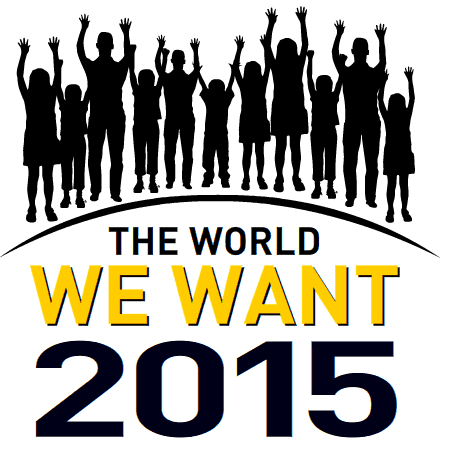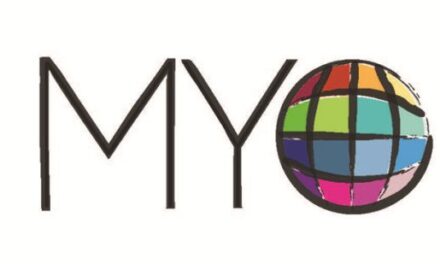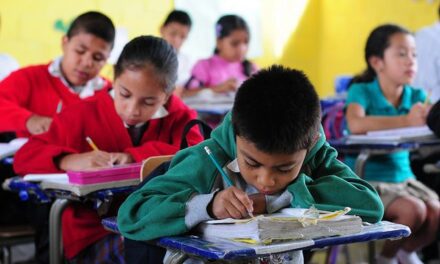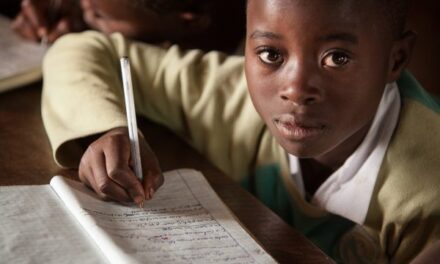 The Post 2015 Global Thematic Consultation on Education opened on 10 December 2012 with an E-discussion on Equitable Access to Education. This e-discussion was one of a series of four thematic e-discussions of the Education Global Thematic Consultation on the World We Want platform. The UN jointly with civil society is gathering views from people around the world and building a collective vision on priorities for a Post-2015 framework. Opinions gathered will inform the UN and world leaders to plan a new development agenda. Each of the education e-discussions will run for 2 weeks and we want to ensure as broad and diverse consultation as possible.
The Post 2015 Global Thematic Consultation on Education opened on 10 December 2012 with an E-discussion on Equitable Access to Education. This e-discussion was one of a series of four thematic e-discussions of the Education Global Thematic Consultation on the World We Want platform. The UN jointly with civil society is gathering views from people around the world and building a collective vision on priorities for a Post-2015 framework. Opinions gathered will inform the UN and world leaders to plan a new development agenda. Each of the education e-discussions will run for 2 weeks and we want to ensure as broad and diverse consultation as possible.
As a co-moderator of that discussion, I urged the UKFIET constituency to make their voices heard on this important issue. The Equitable Access to Education discussion is now closed, and you can view the comments and message from the moderators.
Consultation Two
The Post 2015 Global Thematic Consultations on Education continue with E-Discussion Two on the theme of Quality of Learning, moderated by Kathleen Letshabo, UNICEF; Tekaligne Godana, UNESCO; Antonia Wulff, Education International; Guy Bessette and Vanya Berrouet, CIDA; Felix Zimmermann, OECD; Hayley McQuire, Youth Moderator – Australia. This consultation will run until 21 January. UPDATE: This consultation has been extended to 25 January.
Please click here to go directly to the discussion page and participate. If you have not registered yet, please go to the Education Global Consultation web page.
To kick off the discussion on the quality of learning, the moderators invite you to reflect on the following:
Goal 6 of the Education for All Goals (EFA) is about “Improving all aspects of the quality of education and ensuring excellence of all so that recognized and measurable learning outcomes are achieved by all, especially in literacy, numeracy and essential life skills.” The deep and persistent disparities in access to school are mirrored in learning achievement while at school. Millions of children go through school and come out without basic literacy and numeracy skills due to poor or no investment on quality of education. The gap is even greater in the non formal sector. 775 million adults – 64% of whom are women – still lack basic reading and writing skills. Of this number, 200 million young women and men need a second chance to acquire the basic literacy and numeracy skills which are essential to further learning.
Quality is a complex concept that must be defined in relation to the context in which it is being applied. In addition, it goes well beyond the acquisition of particular skills. The quality of an educational process is determined by a number of different factors, such as early learning foundations, learning conditions at home and in school (i.e. what children bring to school), curriculum frameworks and methodology, language of tuition, availability of teachers and materials, and teachers’ qualifications and working conditions (how the education is structured). The poorest and the most marginalized are worst affected; poverty, hunger and poor nutrition as well as poor health still form major obstacles to learning. Girls and women also tend to face barriers, in part due to a lack of gender-sensitive education.
These factors could be understood as inputs (what children bring to school) and processes (how the education is structured), which shape learning and its outcomes. In addition to basic skills, such as literacy and numeracy, education is also about less measurable learning outcomes, such as critical thinking and problem-solving skills, personal development and the necessary knowledge to be active global citizens.






This consultation has now been extended through 25 January. Here’s what Rebecca Winthrop and Allison Anderson from the Brookings Institution are saying about the topic: http://www.brookings.edu/blogs/up-front/posts/2013/01/18-post-2015-opportunities-winthrop-anderson